Jimmy Anderson, Samba Baldeh, and Melissa Ratcliff, all State Representatives in the 16th Senate District, are running in the Democratic primary. Incumbent State Senator Melissa Agard chose not to run for reelection and is a candidate for Dane County Executive in 2025. The newly-drawn district includes Fitchburg, eastern Dane County, and parts of Dodge County and Jefferson County. There is no Republican running for the seat, so the primary winner is almost certain to win in November. Baldeh did not respond to our request.
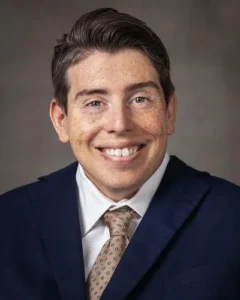
Jimmy Anderson
Jimmy Anderson’s responses:
What are your goals for your first/next term in office should you be elected?
If I am elected, I will prioritize making our healthcare system more accessible, affordable, and responsive for all Wisconsinites, including people with disabilities. That means expanding Medicaid in Wisconsin, capping healthcare costs for the uninsured, preventing insurance companies from raising rates without just cause, lowering the prices of prescription drugs, and giving patients more resources to advocate for themselves. I will also continue championing legislation to fully fund our public education system, from pre-k through college: increasing the state special education reimbursement rate from 33 to 90%, boosting aid to childcare providers, stemming the flow of taxpayer dollars into the unaccountable voucher system, and supplying state funding higher education more affordable – including need-based financial aid and student loan forgiveness. Overturning Act 10 will be instrumental to ensuring that every worker, public or private, has the right to a strong union and collective bargaining, a living wage and decent benefits, a safe and healthy workplace, and self-determination for themselves and their families. We must protect our environment and combat climate change. We must overturn the archaic 1849 abortion ban and enshrine reproductive rights into our state Constitution. Finally, Wisconsin’s affordable housing crisis must be addressed: I will continue fighting for policies that incentivize building more affordable housing, expanding assistance programs such as the Homestead Tax Credit, and reintroduce my Tenant Protection Package, which prohibits housing discrimination against immigrants, provides grants for tenants’ legal representation, codifies compensation for uninhabitable conditions, and guarantees tenants’ right to organize.
Please describe your qualifications and what sets you apart from your fellow candidates.
I grew up the son of a union truck driver and a Mexican immigrant and became the first in my family to go to college. During law school, a drunk driver took the lives of my mother, father, and little brother, and left me paralyzed. In the aftermath of that accident, the Affordable Care Act saved my life, allowing me to afford rehabilitation. I realized first-hand the importance of compassionate policy, which provides grace in the moments when we are hurting the most – and the grave consequences of accepting a system that forces us to make impossible sacrifices. My experience inspired me to run for office and fix what was broken in our system. I was elected in 2016 and have served in the State Assembly for the last eight years, focusing on issues around healthcare, environmental protection, school funding, and disability access. My state legislative experience, which is more than both of my opponents’ combined, has prepared me to be effective on day one. If Democrats only have a slim or brief majority, experience and trusted relationships will be essential to making our progressive vision for Wisconsin a reality. Secondly, I believe strongly in the ideals of a representative democracy. No one else in the legislature looks like me, despite about 20% of our state having some form of disability. My voice is needed in the capitol because my lived experiences give me special insight into how legislation might unintentionally impact or harm the disabled community.
While UW-Madison is situated in Dane County, its role as an economic engine it benefits the entire state. UW-Madison also has unique needs that are different from the other Universities of Wisconsin. Please tell us how you would represent UW-Madison in the Legislature and encourage your colleagues from outside Dane County to understand the statewide benefit of a strong UW-Madison?
Over the eight years I have served on the Assembly’s Colleges & Universities Committee, I have consistently advocated for fully funding our university system. Well-funded universities provide immense benefits to everyone in Wisconsin, from training our future workforce to making our state a better place to raise a family. In fact, every dollar invested in the UW system creates a $23 return for the state. Therefore, making higher education more affordable and accessible for everyone, regardless of means, race, religion, gender identity, sexual orientation, and disability status, will continue to be a major focus of mine in the State Senate. As a proud graduate of UW-Madison’s law school, I agree that our flagship university occupies a special place in the UW system, given its ability to draw students from across the country and world, its world-renowned faculty, programs, and the incredible world-changing research it produces. If elected, I will do everything in my power to maintain – and expand – UW-Madison’s resources so it can continue to operate as a beacon of innovation, opportunity, and learning for all.
State funding for higher education has fallen dramatically over the past several decades, resulting in a dependence on tuition and fundraising to replace decreased state support. A ten-year long tuition freeze coupled with previous state budget cuts has forced UW-Madison to make serious cuts, while other UW System campuses face devastating budget shortfalls. How would you address these concerns if elected?
Republicans’ recent cuts to the UW system’s budget – as well as their efforts to make university funding conditional upon universities’ adherence to a regressive and inflexible ideological program – are simply unconscionable. We can no longer be a state that funds our prison system more than we fund our universities. If I am elected to the State Senate, I will work hard to ensure that the state fully reinvests in the UW system, including the Wisconsin Grants and Tuition Promise initiatives. I fully support the legislative Democrats’ “Reaching for Higher Ed” package, and will continue to champion it if I am elected to the State Senate. Although providing more state funding will help reduce the need for future students to take on loans, we must also do more to provide relief for the over 700,000 graduates who are struggling to pay off pre-existing student loan debt. I would also support legislation to allow borrowers to refinance their loans at lower interest rates and deduct student loan payments from state income taxes.
The current legislative majorities have worked to delegitimize diversity, equity, and inclusion (DEI) efforts. Legislators have forced the university to reclassify DEI positions and a legislative audit of UW DEI programs is underway. UW-Madison as an institution understands diversity to be a value that is inextricable from its other values, including educational and research excellence. Tell us about your legislative priorities on diversity, racial justice, and their relation to the values you hold related to higher education.
The importance of DEI to the wellbeing of UW’s student body is undeniable and I will actively work to safeguard and empower these initiatives if I am elected to the State Senate. During the state budget process last year, legislative Republicans cut UW funding by $32 million and attempted to eliminate the university system’s 188 Diversity, Equity, and Inclusion positions. Directly targeting programs designed to support minority students not only contributes to a long-found pattern of exclusion, it also dampens opportunities for all students to succeed. According to UW-Madison’s Diversity Inventory report, the Republican budget cut for DEI services has managed to decrease the target population for DEI initiative change from 65,584 in 2022 to just 1,335 in a single year. We must safeguard DEI programs from such cuts in the future and make sure that our universities are not only authorized, but encouraged, to proactively support underrepresented student populations. As a disabled, Latino man, I have greatly benefited from DEI programs and fully understand how they help individuals from all backgrounds climb up the economic ladder. If I am elected to the State Senate, I promise to restore what’s been lost and prevent Republicans from dismantling these incredibly important programs.
Wisconsin ranks near the bottom of state funding for four-year post-secondary education, while state funding for two-year technical education is among the best in the country. How would you address this disparity in the Legislature?
As a state, we absolutely have the resources to eliminate this inequity without sacrificing state support for technical colleges and vocational programs. I fully supported Governor Evers’ proposal to allocate $306 million in state funding to the UW System in the last state budget, and I will support similar investments in the future. If we want to increase enrollment, attract and retain talented students, staff, and faculty, and empower UW-Madison to compete with other top-tier universities across the country, we have to make the same investments in our four-year campuses as we have made in our technical college system.
Work on the 2025-27 state budget will begin shortly after legislators are sworn into office. What are your funding priorities?
My top budget priority if elected to the State Senate will be public school funding, from childcare and pre-k all the way through to higher education. Wisconsin must uphold its responsibility to fully fund our public schools to provide all students with an equal opportunity to learn and grow. However, our current school funding formula is outdated and broken. Communities are forced to go to referendum over and over again just to keep the doors of their public schools open, all while the state sits on a multi-billion dollar surplus. We must use our resources to invest in our public education system and stop expanding funding to voucher programs that only shortchange public schools while deepening inequities. In addition to school funding, I will prioritize investments in affordable housing, cleaning up PFAS in our water systems, supporting our colleges and universities, increasing eligibility for the Earned Income Tax Credit and Homestead Tax Credit, expanding Medicaid, and reducing costs of living for lower and middle class families.
PROFS has long advocated for paid family leave for all employees and is pleased that UW-Madison and the Universities of Wisconsin recently approved a modest six-week paid parental leave benefit. We believe this is just the first step and more needs to be done. Will you support initiatives like those offered by Governor Evers that would expand paid leave to state employees and create a paid leave insurance program for public and most private sector employees in the state?
All Wisconsin workers deserve to know that they can take time away from work to care for a child or support an ill family member without losing pay or access to benefits. I fully support Governor Evers’ proposal to guarantee public and private sector workers 12 weeks of paid family and medical leave. I believe that we can best serve our communities and our economy by enacting policies that treat workers like human beings, and enacting universal paid family & medical leave is a paramount example of that worldview.
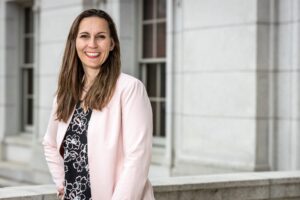
Melissa Ratcliff
Melissa Ratcliff’s responses:
What are your goals for your first/next term in office should you be elected?
Statewide, we should repeal the 1849 law criminalizing abortion as our first act in the new legislature. For the people I will represent in Senate District 16, better access to high-speed internet is a key issue. Lack of broadband affects education, business, our farmers, and access to health care. District residents are also affected by the lack and cost of childcare.
Please describe your qualifications and what sets you apart from your fellow candidates.
My background and experience are the best fit for new Senate District 16. I am a working mom who understands residents’ concerns. I will bring my proven track record of getting results, fighting for our shared values, and working tirelessly for the communities I serve to the State Senate. I have lived in small towns and rural communities like those in District 16. My experience in the State Assembly, on the Village Board and County Board gives me a unique perspective. With new maps, we need leaders who will help change the face of the Senate in years to come. I have earned the endorsement of more than 100 current and former elected leaders throughout the district including former Dane County Executive Kathleen Falk, Former Fitchburg Mayor Frances Huntley-Cooper, Jefferson County Board Chair Steve Nass and Stoughton Mayor Tim Swadley. My priorities include ensuring access to abortion, supporting public schools, protecting the environment, expanding health care, increasing access to broadband, support for LGBTQIA+ communities, and supporting the needs of rural communities.
While UW-Madison is situated in Dane County, its role as an economic engine it benefits the entire state. UW-Madison also has unique needs that are different from the other Universities of Wisconsin. Please tell us how you would represent UW-Madison in the Legislature and encourage your colleagues from outside Dane County to understand the statewide benefit of a strong UW-Madison?
In the Assembly, I have been a vocal supporter of UW-Madison and have pushed back hard on efforts to eliminate and undermine DEI. Many of my colleagues, unfortunately, simply try to score political points by disparaging Dane County and Madison. With fair maps in place, after decades of being one of the most gerrymandered states in the Country, we have the opportunity to change the make-up of the legislature. I have worked tirelessly ever since I was in public life to elect Democrats up and down the ticket. I will continue to do so. We need a majority in the legislature in order to truly make progress on the issues that Wisconsinites overwhelmingly support but which are bottled up in partisan gamesmanship.
State funding for higher education has fallen dramatically over the past several decades, resulting in a dependence on tuition and fundraising to replace decreased state support. A ten-year long tuition freeze coupled with previous state budget cuts has forced UW-Madison to make serious cuts, while other UW System campuses face devastating budget shortfalls. How would you address these concerns if elected?
The UW System needs more funding from the legislature and less meddling. I have supported measures to increase funding to the UW system and I have coauthored bills to make the University more affordable for students such as AB 990 which would have created a grant program to close the gap between any scholarships or grants that an eligible student received outside of this program and the full cost of tuition and fees. The University of Wisconsin system is an economic generator for our state. We need to invest in our UW system in order to support more students to come here and stay here. For every $1 we invest in the UW System, we get a $27 return on our dollar. That makes smart sense fiscally. Cutting funding for a program that earns a $27 return? That doesn’t make sense. We need the brain trust in our state to stay here to contribute to our economy and we want younger people to stay here, raise their families, and be a part of Wisconsin’s economy.
The current legislative majorities have worked to delegitimize diversity, equity, and inclusion (DEI) efforts. Legislators have forced the university to reclassify DEI positions and a legislative audit of UW DEI programs is underway. UW-Madison as an institution understands diversity to be a value that is inextricable from its other values, including educational and research excellence. Tell us about your legislative priorities on diversity, racial justice, and their relation to the values you hold related to higher education.
I will continue to prioritize DEI in the Senate just as I did in the Assembly. I personally communicated my opposition to System officials when DEI positions were about to be cut. I understand the value of DEI positions and know how important it is to have DEI as part of the vision/mission statement: that makes equity and inclusion part of the culture of the school. When DEI is removed, the culture of the campus changes because students and staff know that is no longer a focus. I strongly opposed AB 245 which contained poison pills that would have banned using local tax dollars for DEI initiatives. As the mother of a transgender child, I cofounded the legislative Transgender Parent and Non-Binary Advocacy Caucus both to advocate for transgender and non-binary youth and community, and to be active in opposing anti-trans legislation which targeted trans and non-binary youth, equity, inclusion and diversity.
Wisconsin ranks near the bottom of state funding for four-year post-secondary education, while state funding for two-year technical education is among the best in the country. How would you address this disparity in the Legislature?
The University of Wisconsin is one of the state’s biggest assets. It is a critically important economic driver in our State and one of the nation’s premiere public Universities. We should be working together to make the System healthier and stronger. The legislature needs to increase support for the UW System. Legislators need to work with UW Leadership to help identify and enact innovative and proactive ways to increase enrollment. Legislative leadership should stop bashing the UW, stop meddling, and invest more in the System.
Work on the 2025-27 state budget will begin shortly after legislators are sworn into office. What are your funding priorities?
Fund our public schools, including our public universities. Expand access to health care. Prioritize family-supporting policies including investing in safe, affordable childcare. Continue funding for expansion of broadband. Invest in conservation and sustainability initiatives.
PROFS has long advocated for paid family leave for all employees and is pleased that UW-Madison and the Universities of Wisconsin recently approved a modest six-week paid parental leave benefit. We believe this is just the first step and more needs to be done. Will you support initiatives like those offered by Governor Evers that would expand paid leave to state employees and create a paid leave insurance program for public and most private sector employees in the state?
Yes! I strongly support expanding paid leave to state employees and increasing access to it for public and private sector workers. I have been a strong advocate for Paid Family Leave for years. It will allow people to care for their families or themselves without concern for the loss of a job. It also helps small employers attract and compete with the benefits that larger employers can provide.

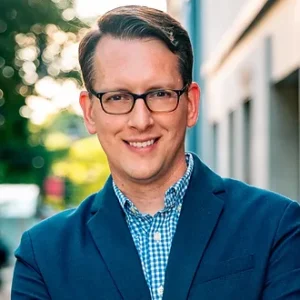
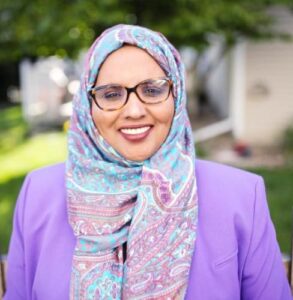
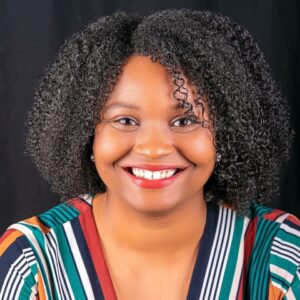
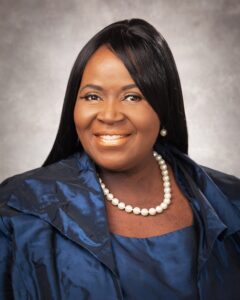
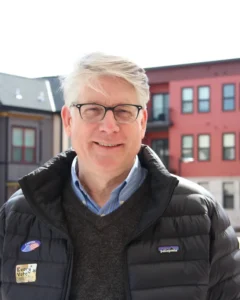
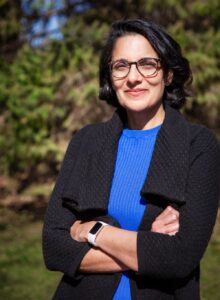
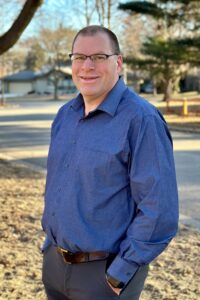
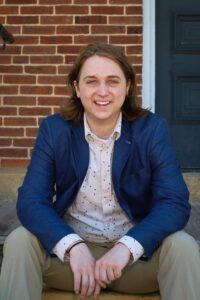

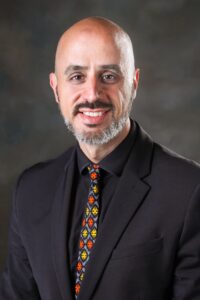
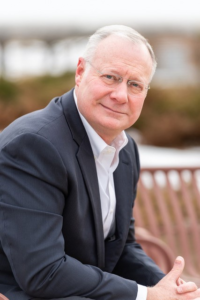
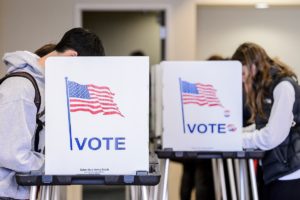

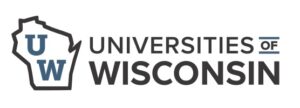 The Universities of Wisconsin Board of Regents
The Universities of Wisconsin Board of Regents